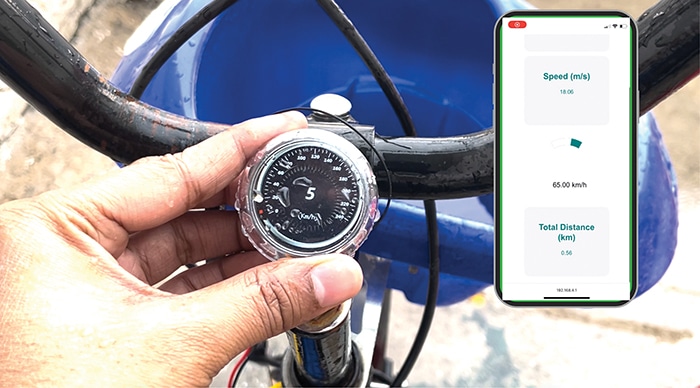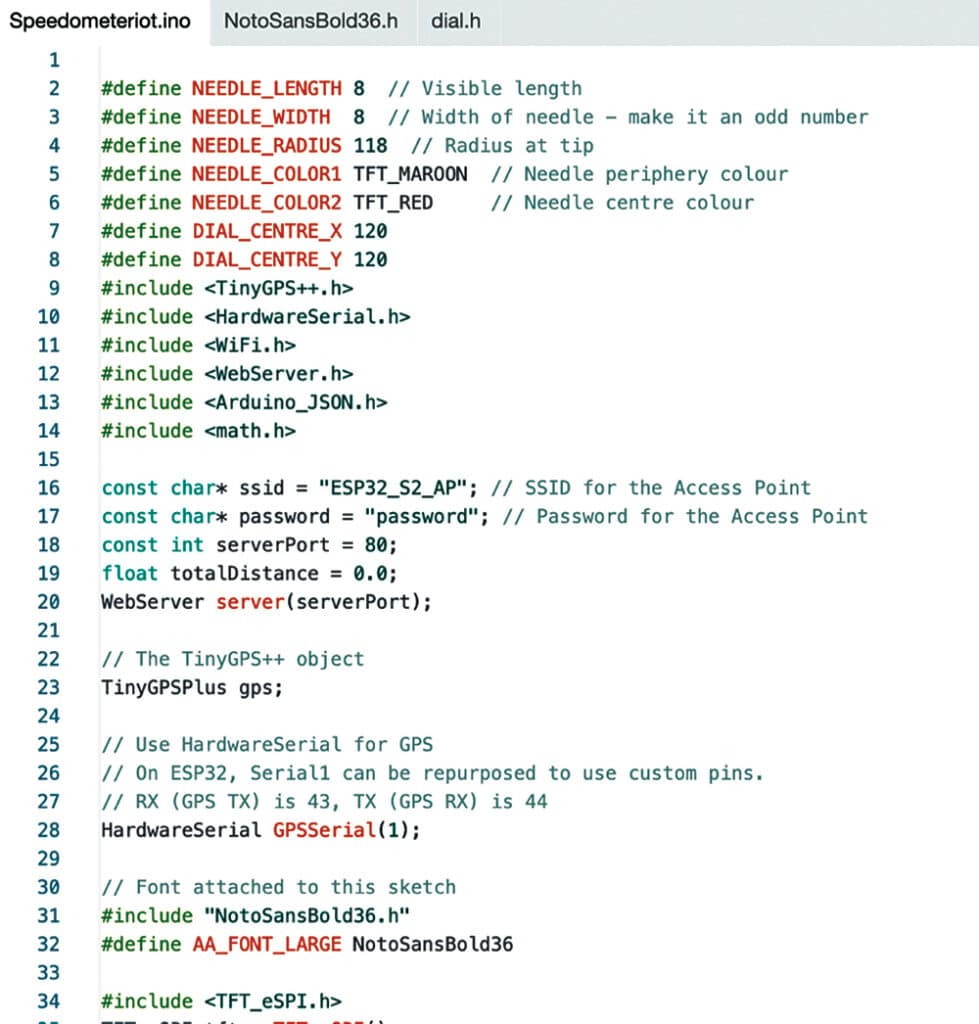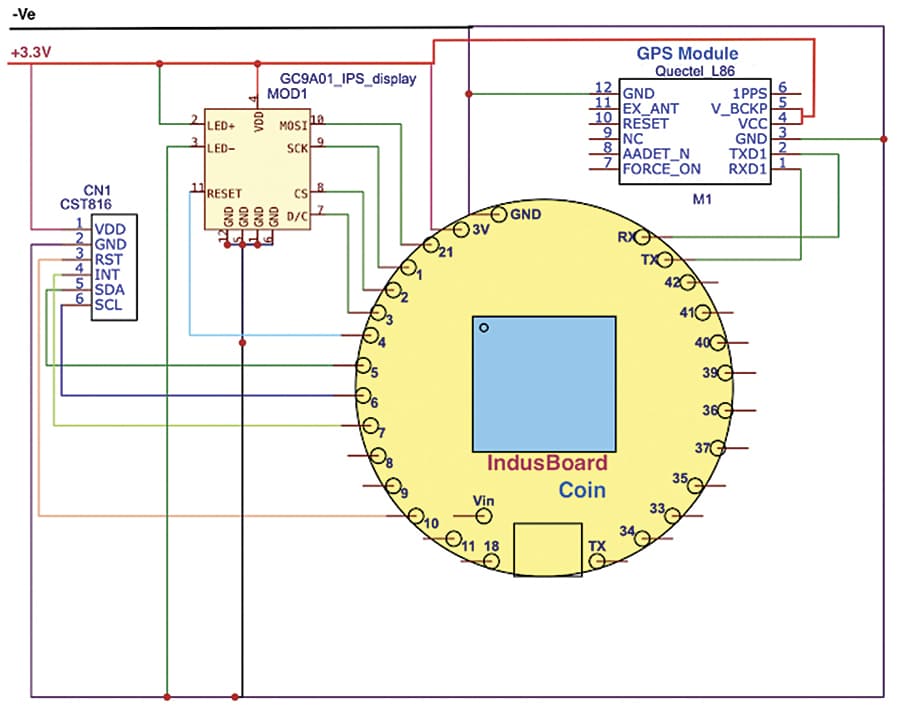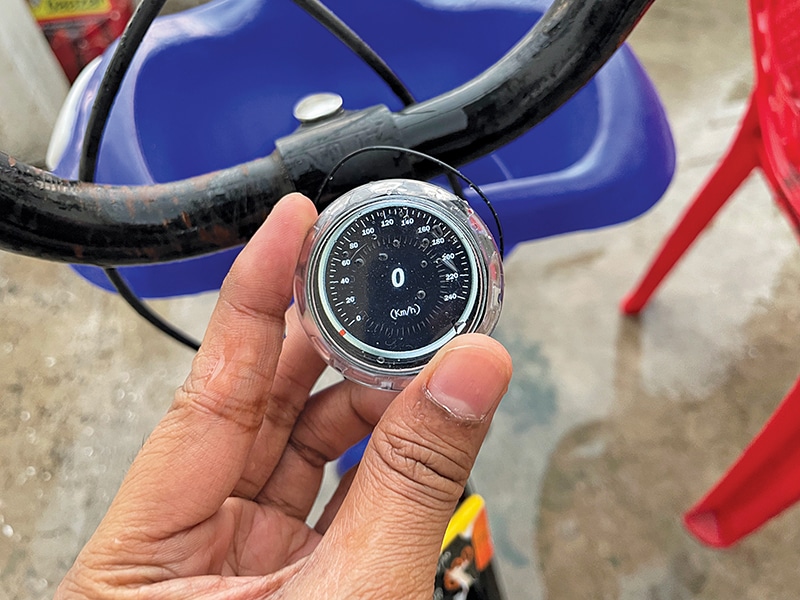
In today’s fast-paced world, accurate speed measurement is crucial across various domains, from automotive vehicles to drones and athletic training. To meet this need, the following is a groundbreaking development: a GPS-based speedometer capable of measuring speeds up to 1854 kilometres per hour.
What sets this speedometer apart is its compact size, utilising the Quectel L86 GPS + GPS module and the IndusBoard with the 3D accelerometer and compass sensor, all packaged in a tiny 3cm IndusBoard coin form factor.
This makes it the smallest speedometer device, suitable for any automobile, bicycle, runner, athlete, speed bot, motor bot, drone, or robot, enabling real-time speed measurement. In addition, the device also provides IoT capability and connectivity to almost any Wi-Fi enabled device like a laptop, phone, or tablet to keep real-time track of speed and total distance covered.
The applications of this GPS-based speedometer are diverse and impactful. It can be used in automobiles to provide real-time speed feedback for drivers, enhancing safety and adherence to speed limits. It can be used in bicycles to help cyclists monitor their speed during training or recreational purposes. It is also beneficial for runners and athletes to provide precise speed measurements for performance tracking and training optimisation.
Moreover, it facilitates speed control and navigation accuracy in drones and robots, which is crucial for autonomous movement and obstacle avoidance.
Additionally, it optimises performance in speed bots and motor bots by monitoring speed in various robotic applications.

PoC Videos
Fig. 1 shows the prototype fitted on a bicycle. For making this GPS speedometer for the bicycle, the components required are shown in Bill of Materials table.
| Bill of Materials | |
| Components | Description |
| IndusBoard | 3cm sized development board |
| L86 GPS module | GPS module |
| GC9A01A round display | LCD display |
| CST816 | Capacitance touchchip |
| Casing | Outer casing of device |
Programming GPS-based Speedometer
For coding, first, it is necessary to install the TFT espi and TINY GPS Plus libraries; the next steps are explained in the code. Fig. 2 shows a snippet of the source code.

Circuit and Working
Fig. 3 shows the circuit diagram of the GPS speedometer for bicycles and cars. It is built around the IndusBoard, capacitance touchchip CST816, GC9A01A round display, and L86 GPS module.


The L86 GPS uses the serial port with a baud rate of 9600 to send the GPS data. The IndusBoard supports both software and hardware. The L86 GPS pins RXD1 and TXD1 are connected to TX and RX1 of the IndusBoard, respectively. According to the L86 GPS module dataset, the module can be powered from a range of 2.8V to 4V while consuming around 100mA in working mode.
The IndusBoard has four output pins that can handle the current and power. Therefore, the 3.3V and GND pins of the IndusBoard are used for the GPS powering. For more details about the GPS powering system, refer to the previous month’s issue of EFY or use its datasheet.
Construction and Testing
For the construction of the device, solder all the components according to the circuit diagram (see Fig. 2). After soldering the components together, fix them on top of the bicycle handle or car’s dashboard. Now, power the device and and start driving.
Based on the change in GPS location with time, it will start giving the speed, which can be seen on the device, as shown in Fig. 4.
Ashwini Kumar Sinha is a tech journalist at EFY, with hands-on expertise in electronics DIY. He is passionate about AI, IoT, and electronics. He holds two design contest records and is two times winner of US-China Makers Award.














Could you please share the complete code? And could you please help me on how to do device coding?